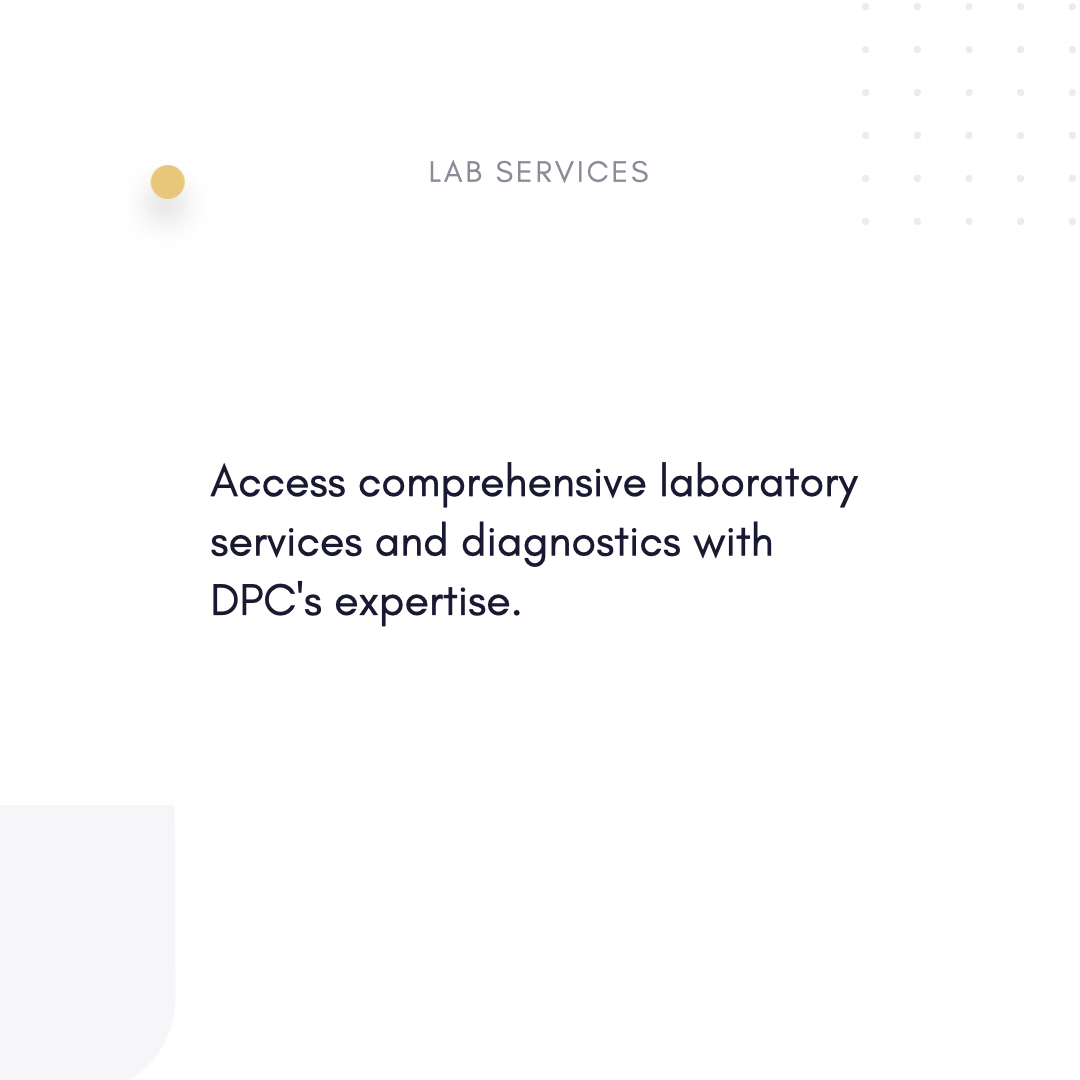Lab Services and Direct Primary Care (DPC): Streamlined Diagnostics, Personalized Care
If you need blood tests, urinalysis, or genetic screenings as part of your health journey, DPC makes sure that these lab services are easy to get, cheap, and fit in with your care plan.

Comprehending Lab Services in DPC: Accuracy at Your Fingertips
DPC does a lot of different lab tests, such as:
- Routine panels: CBC, metabolic profiles, and lipid panels.
- Tests that are specific to you: hormone levels, thyroid function, and HbA1c.
- Genetic tests: BRCA and pharmacogenomics.
- Testing for infectious diseases: STIs, Lyme disease, and COVID-19.
Important information for patients:
- Uses: Find out what's wrong, keep an eye on long-term illnesses, and figure out what might be wrong.
- Safety: Not much; bruising or dizziness from blood draws.
- Costs: DPC includes labs in its membership, or it has self-pay rates that are 50–70% lower than those of regular clinics.
Risks of waiting too long to get tested:
- Diabetes that hasn't been diagnosed and infections that haven't been treated.
What DPC Does to Change Lab Testing
Direct Primary Care (DPC) replaces broken lab processes with fast, patient-centered service:
1. Quick access and ease of use
- Phlebotomy done in-house: Blood draws during regular visits.
- Ordering on the same day: No waiting or getting permission first.
- Kits for use at home: Tests you can send in for hormones, gut health, or food allergies.
2. Clear prices and a complete analysis
- Membership that covers everything: Includes common tests, like annual physical panels.
- Discounted self-pay: At wholesale prices, advanced tests like vitamin D and CRP.
- Integrated interpretation: Put the results in the context of your overall health.
3. Follow-up and action with compassion
- Access 24 hours a day, 7 days a week: Talk about unusual results (like high LDL) right away.
- Plans of action that are unique to you: Based on what you find, suggest changes to the diet, supplements, or medications.
- Preventive focus: Keep an eye on trends (like rising glucose) to stop disease before it starts.
Effects in the Real World
- Case 1: Sarah, 45, is tired. Sarah's DPC team used a CBC to find iron-deficiency anemia. Iron supplements gave her energy back.
- Case 2: John, 50, has pre-diabetes. John's DPC provider used trends in his HbA1c levels to help him make changes to his lifestyle that kept him from getting diabetes.
Questions and answers: DPC Lab Services
- Q: How soon can I see the results?
- A: Routine tests take 1 to 3 days, while specialized tests take 5 to 7 days.
- Q: Do you do fasting labs in the morning?
- A: Yes. DPC makes early appointments for fasting panels.
- Q: Is it possible for me to ask for my own tests?
- A: Yes, but only with help from the provider to make sure it's right.
- Q: What should I do if I'm scared of needles?
- A: DPC phlebotomists use numbing creams and other ways to keep people from feeling pain.
Why DPC is the best place for diagnostic care
The American Clinical Laboratory Association (ACLA) stresses the importance of testing on time. DPC delivers by:
- Cutting down on wait times: 90% of results are available in 48 hours instead of more than a week.
- Fewer mistakes: Direct EHR integration cuts down on false reports by 30%.
- Saving money: With bundled pricing, members save between 200 USD and 500 USD each year.
Final Thoughts
Lab services in DPC aren't just numbers; they give you information that can help you stay healthy. DPC gives you a partner who makes testing easy, carefully explains the results, and makes plans that you can use. No surprise bills or waiting games—just proactive, personalized care that keeps you in charge and up to date.






